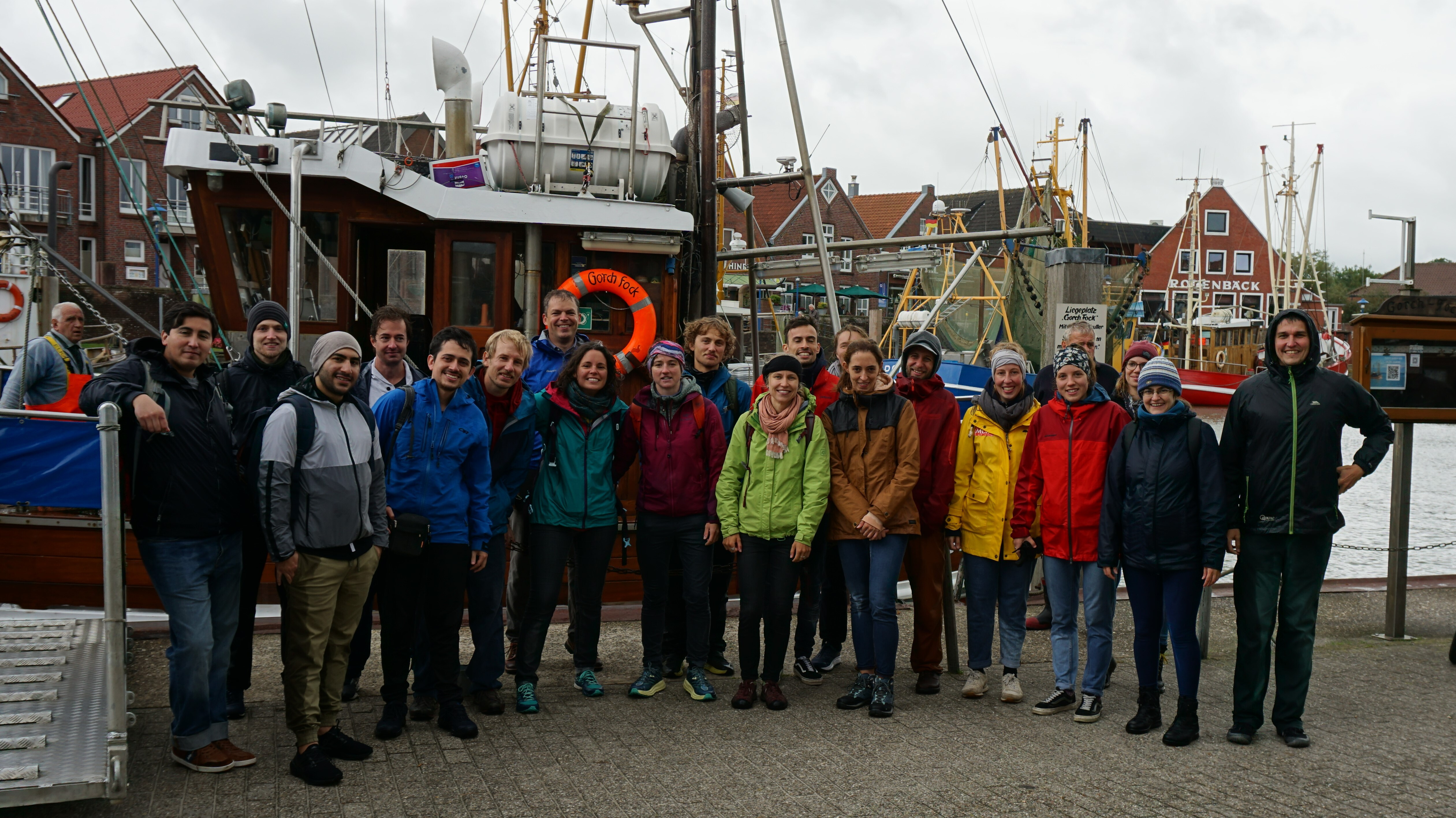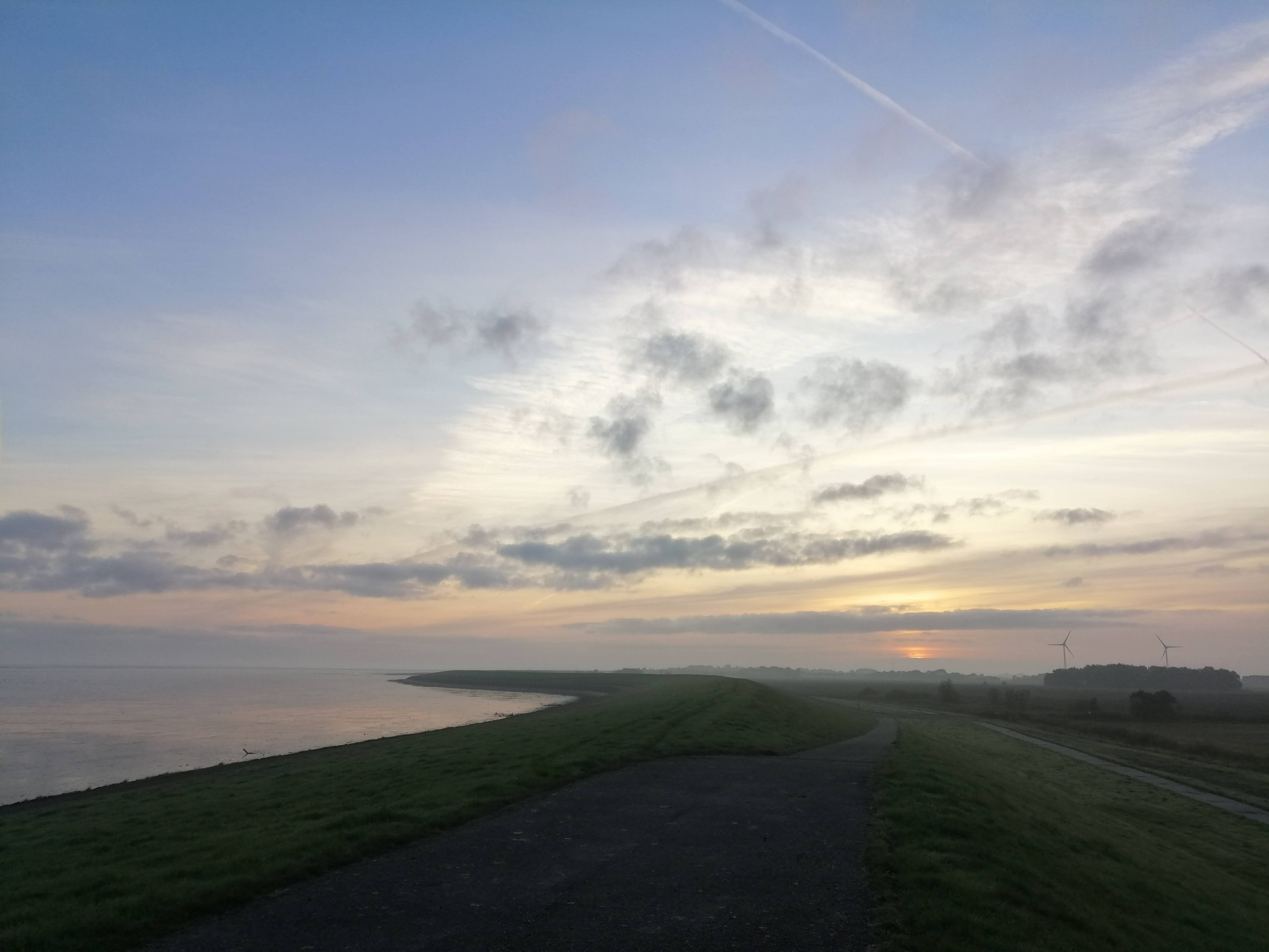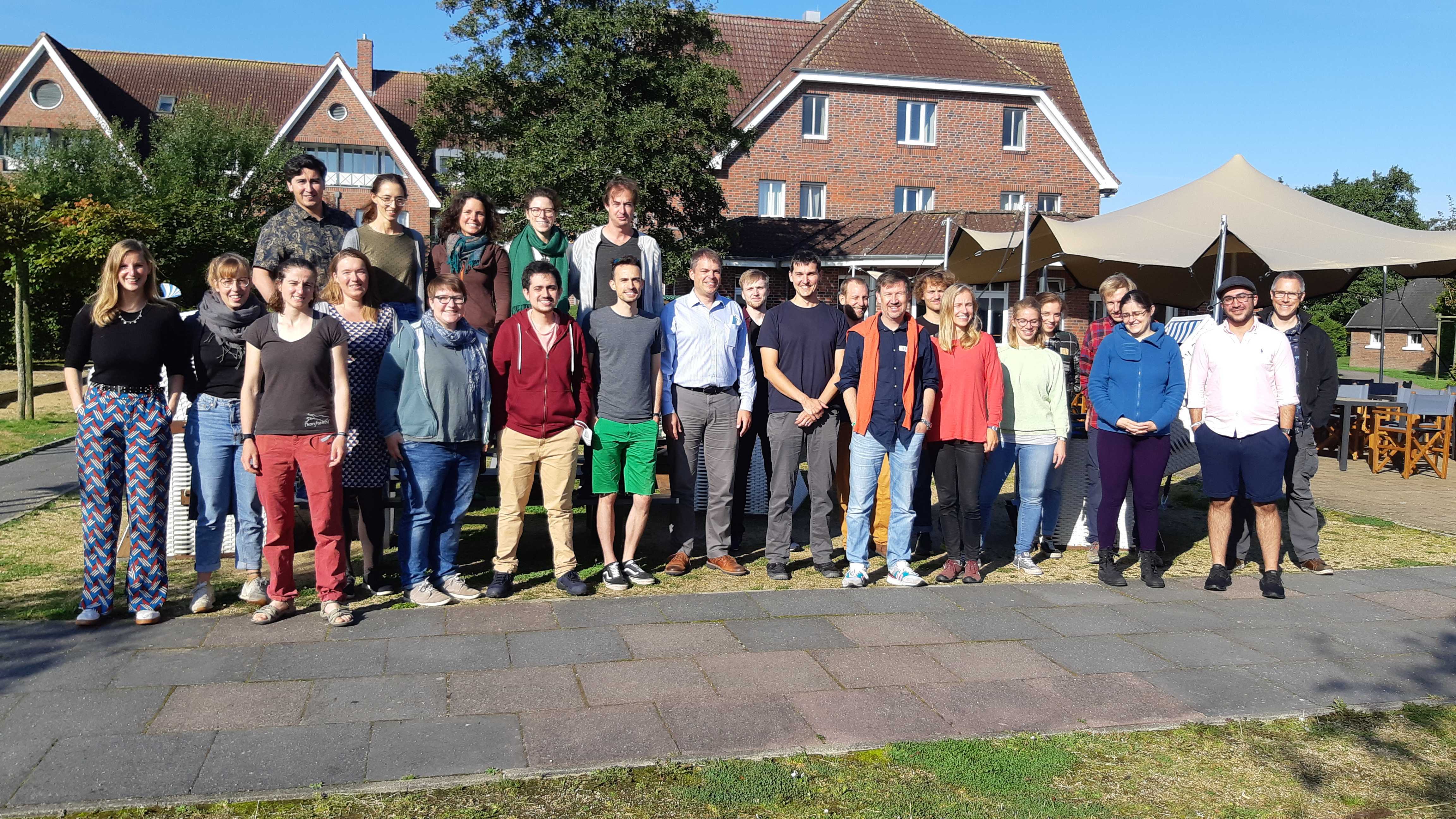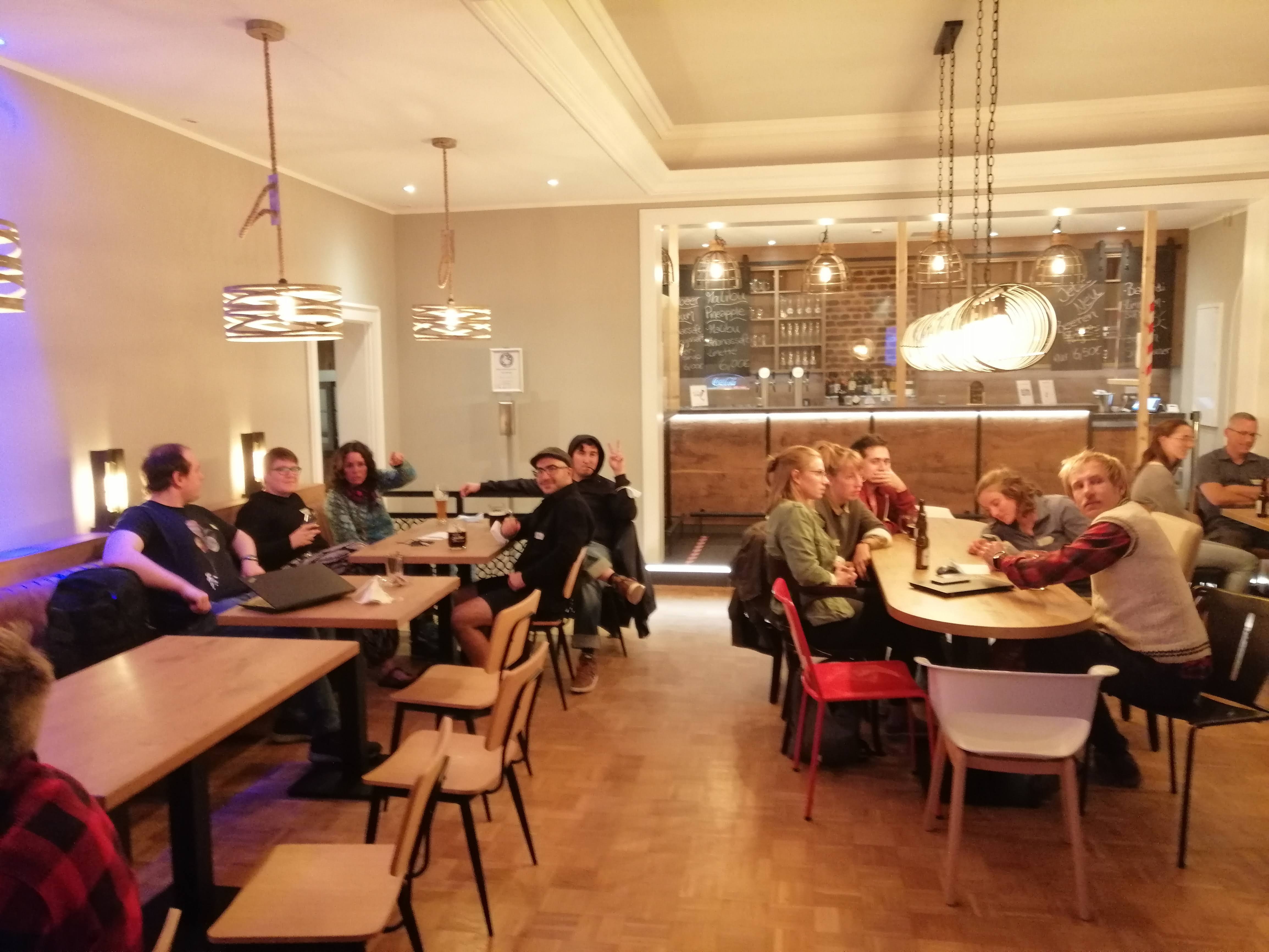In this first autumn days in the Northern Hemisphere, we report about our recent OGGM workshop. It was our fifth meeting altogether, but more importantly the first one since 2 years because of the COVID-19 pandemic, and it was a real face-to-face workshop. You can easily imagine how pleasant and constructive it was to meet again in the same location during one week! Real discussions, exchanges and drinks altogether are so essential to our work.
The workshop took place in Neuharlingersiel, Germany, and was jointly organised by the Institut des Géosciences de l’Environnement IGE, the university of Bremen and the university of Innsbruck. We had 26 participants, around 10 of which had no previous experience with the model. The group includes more and more different institutions every year (8 different research institutions this year) and a good gender balance. The workshop was also probably the most successful, partly due to the in-person meeting but also due to the intense discussions and brainstorming we had, and with no doubt thanks to the boat excursion on North sea and the pub quizz with a remarkable friendly atmosphere!


We had 3 different activities: typical sessions of oral presentation, hands-on tutorials and group discussions and braimstorming (program). There were 5 sessions with oral presentations that covered the following topics:
-
Introduction and general overview of OGGM: after a short introduction from the organizers and a first meet together since a long time, an amazing overview of what is OGGM, a little bit of OGGM history and importantly the philosophy and goal of the modelling framework. In addition, we started discussions about building together the future of OGGM and what recommendations and ideas we can provide to the community.
-
Glacier hydrology: two presentations were dedicated to this this emerging topic (as far as OGGM is concerned), and this subject was actively followed thanks to its promising scientific and societal impacts, as well as the recent model developments to improve glacier catchment hydrology.
-
Glaciological data, model calibration, validation and comparison: this thematic block was led by Michael Zemp, who presented recent advances in global coverage mass-balance observations from satellite and a new project aiming to combine satellite (global coverage) and in-situ observations (fine temporal resolution). This session had 5 presentations, also covering the comparison with other models and the different parameterizations in OGGM.
-
Recent developments: this session included 5 presentations showing how active the community is and how lot of different approaches are being included in the OGGM framework. These developments concern among others marine-terminating glaciers, debris-covered glaciers, ice thickness inversion and surface mass-balance formulation.
-
Glacier evolution, past and future: the last session was dedicated to the use of OGGM for past and future glacier evolution and included 5 presentations about glacier reconstruction at centennial to millennial time scales, as well as projections.

The hands-on sessions were dedicated to beginner and more advanced tutorials, the presentation, discussion and tutorials about OGGM-edu and its applications. We had 3 long breakout sessions for discussion about:
-
uncertainties in glacier modelling in general and OGGM specifically (based mainly on GlacierMIP2 results published in Marzeion et al.. 2020) as well as how to best use the in-situ and satellite data for calibration and validation.
-
hydrological applications and challenges, in particular the spatial scale of glacier and hydrological models and their coupling, the differences in precipitation correction in the two communities and how to include the future disappearance of glaciers into a hydrological modelling framework.
-
the future of OGGM, the ideas and applications that can be done and the development that are necessary. We also discussed about how the OGGM community works and what could be improved
We are very glad that many could come to this workshop and we are looking forward to the next one in 2022!

The full output from this workshop will take the form of a collaborative “white paper” (if you are interested in participating, just provide your comments and updates here) and probably some new OGGM Enhancement Proposals.